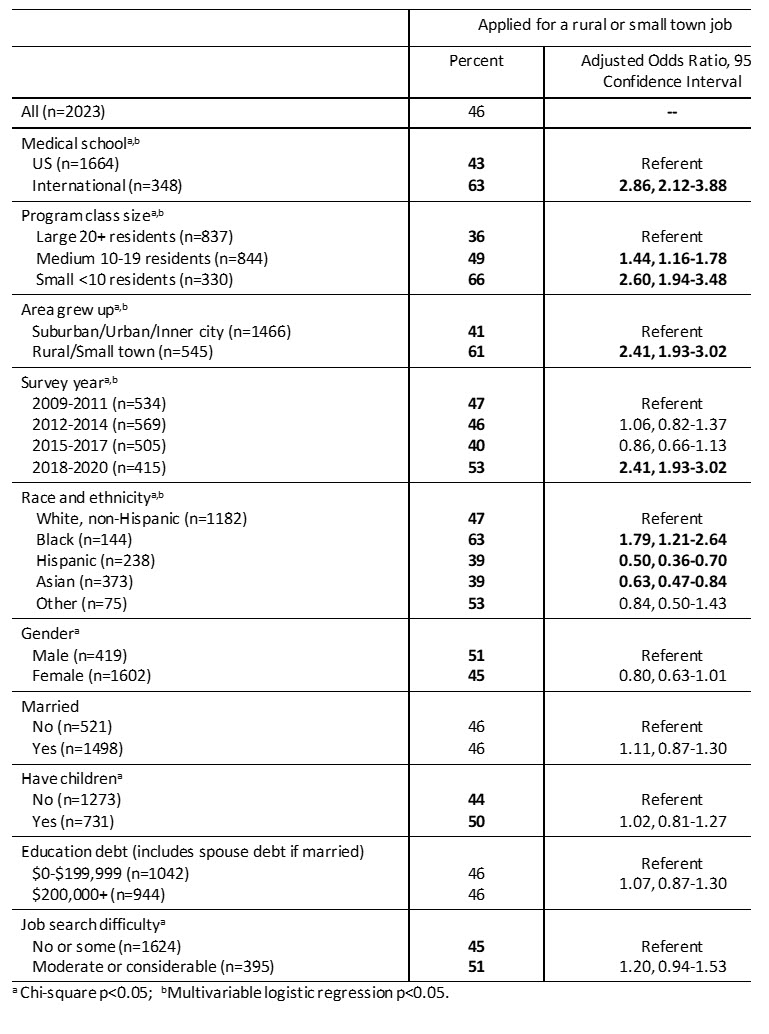Frintner MP, Kist T, Cull W
Presented at the 2022 Pediatric Academic Societies Annual Meeting
Background: US pediatric workforce has long been unevenly distributed. Learning more about residents who consider rural or small town areas for their first jobs might inform workforce discussions.
Objective: Examine portion of residents who apply for and then accept primary care jobs in rural or small town areas and characteristics associated with considering these areas.
Methods: AAP Annual Survey of Graduating Residents was sent to national, random samples of 1,000 graduating pediatric residents each year from 2009-2020; 56% completed the surveys (48-64% across years). Responses were pooled in 3-year intervals and limited to those directly entering primary care (33% of respondents; n=2138). Questions about areas of job applications and post-residency job were asked across years. Response options included: Inner city, urban, suburban, small city/town, rural, outside US. Small town and rural responses were combined. Multivariable logistic regression examined characteristics associated with a) applied for and b) then, among those who applied, accepted rural or small town jobs.
Results: Among residents starting primary care jobs, 27% grew up in rural (8%) or small town (19%) areas. Few reported moderate (15%) or considerable (4%) difficulty in their job search (Table).
Two-thirds reported applying for jobs in suburban areas, 54% urban, 44% small town, 40% inner city, 15% rural, and 2% outside US. 46% applied for jobs in either rural or small town areas. Among residents who applied for jobs in rural or small town areas, 59% accepted jobs in these areas (24% in suburban, 10% urban, 7% inner city).
In multivariable analysis, residents who are international medical graduates, in smaller residency programs, have rural or small town backgrounds, completed residency 2018-2020, and identify as Black were more likely to apply for rural or small town jobs (Table). For example, residents who grew up in rural or small town areas were more likely to apply for rural or small town jobs (aOR 2.41, 1.93-3.02). Among residents who applied for jobs in these areas, only 2 characteristics further predicted accepting a job. Residents with rural or small town backgrounds and those from smaller residency programs were more likely to accept.
Conclusion: Almost half of graduating pediatric residents starting primary care jobs consider rural or small town areas in their job search; fewer accept jobs in these areas. More recent graduates might be considering these areas in their job search and this trend should be monitored to see if it continues.
Table 1. Among Pediatric Graduating Residents Entering Primary Care: Association of Resident Characteristics and Applied for Rural or Small Town Job

Last Updated
05/23/2022
Source
American Academy of Pediatrics